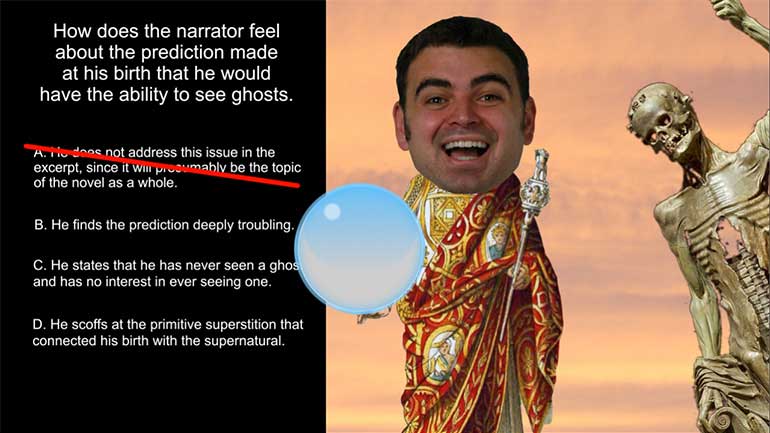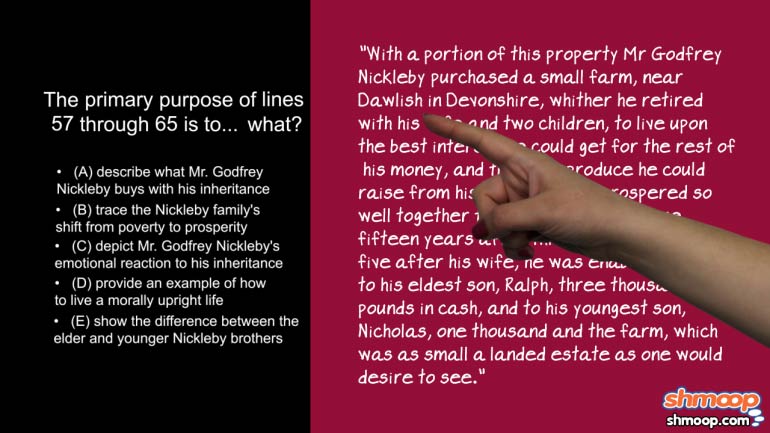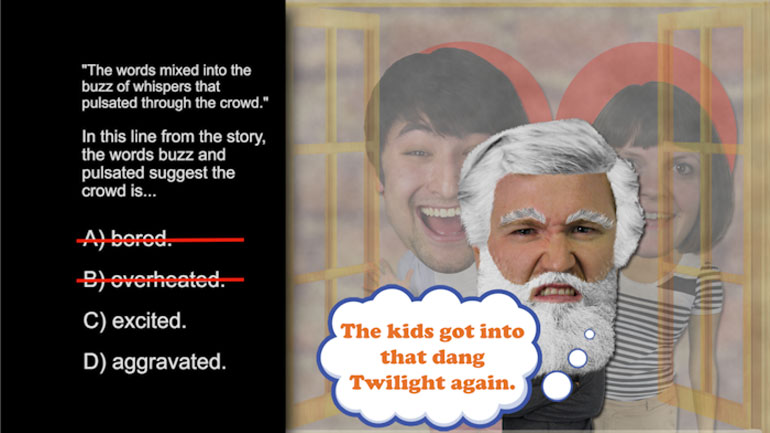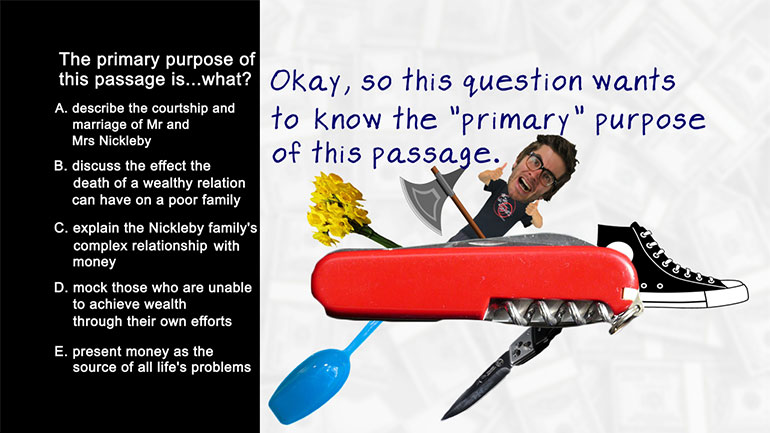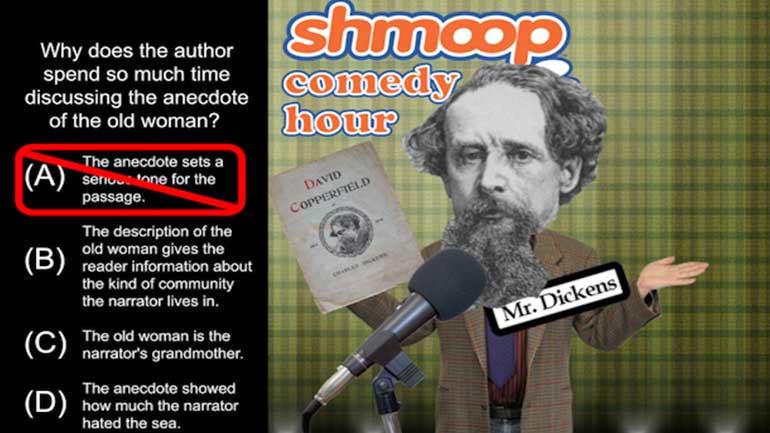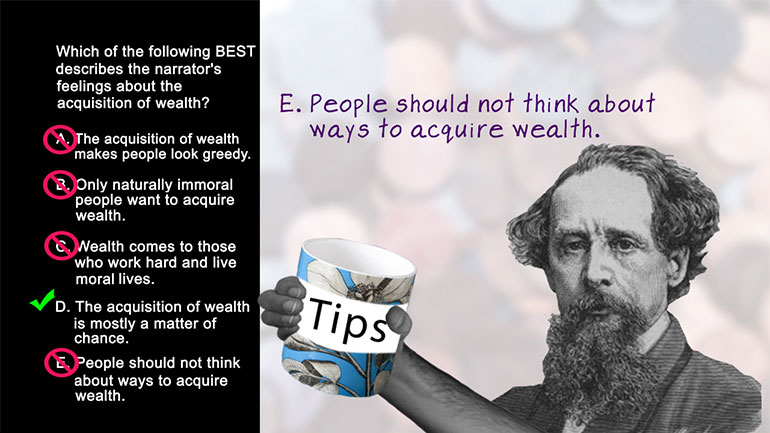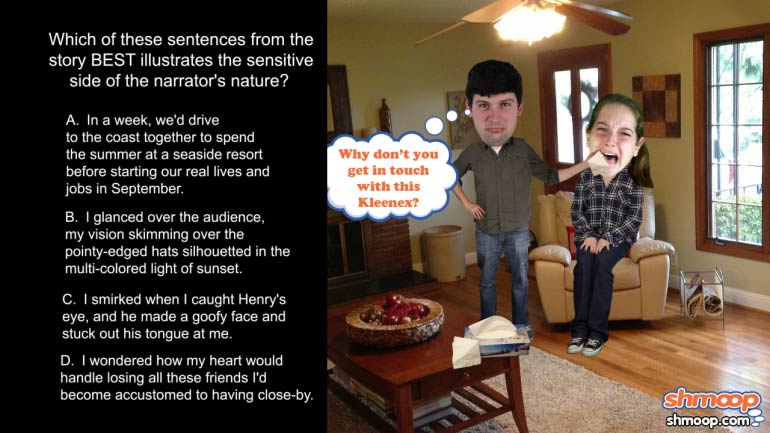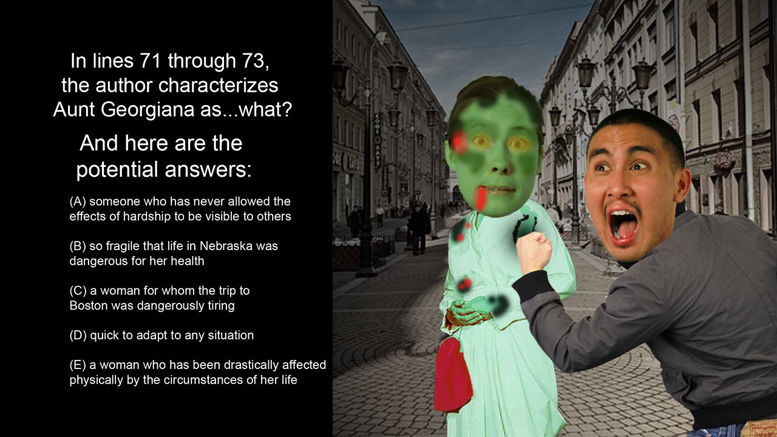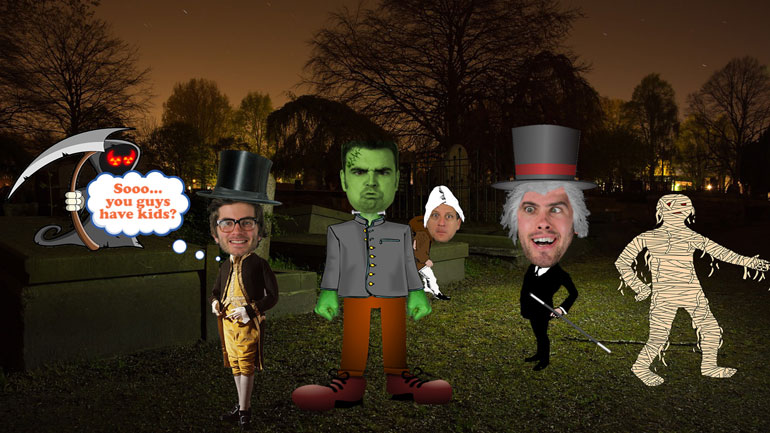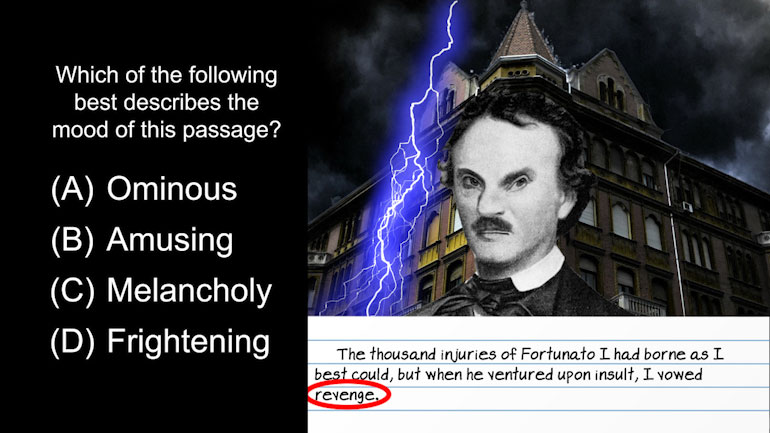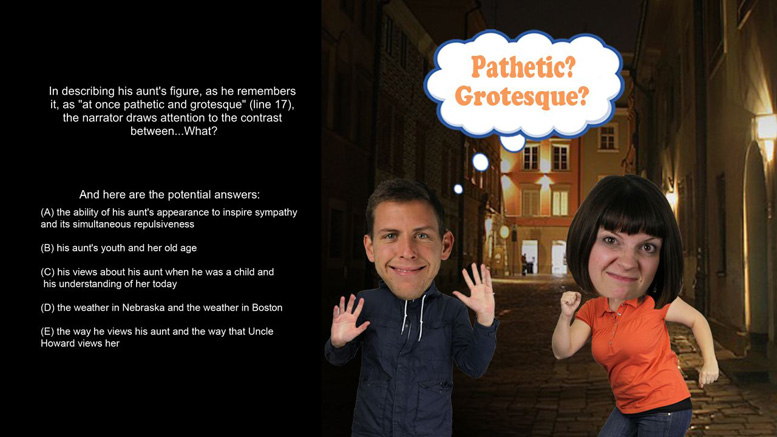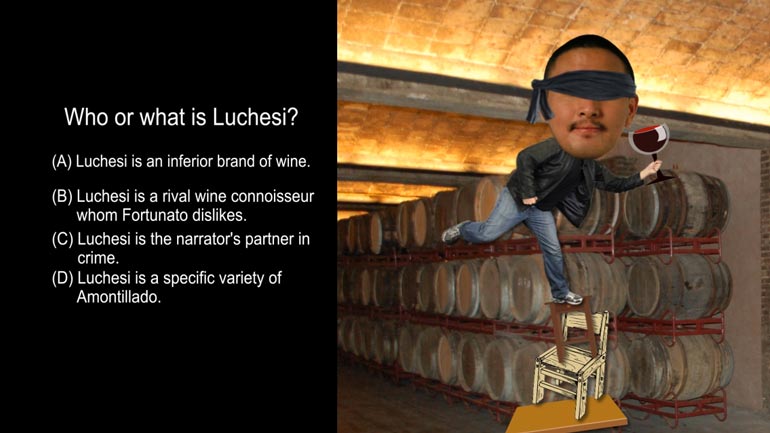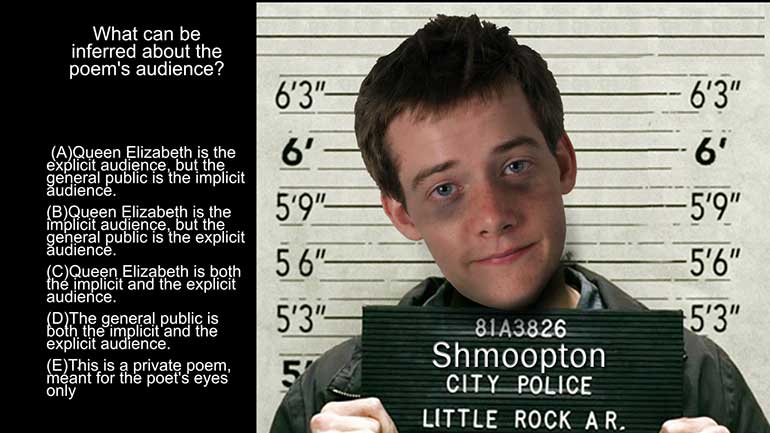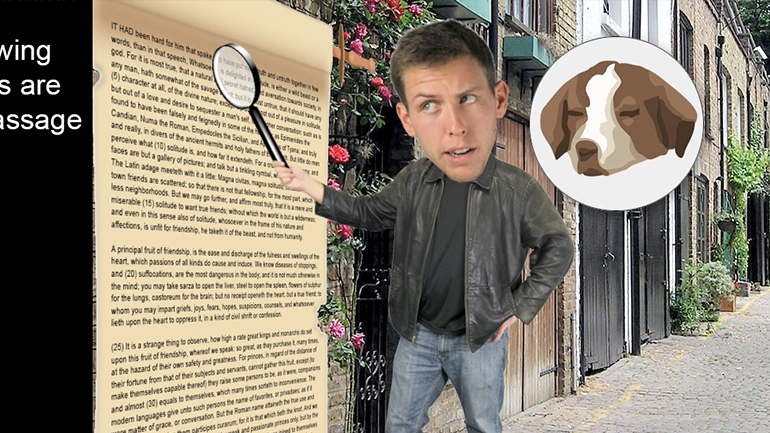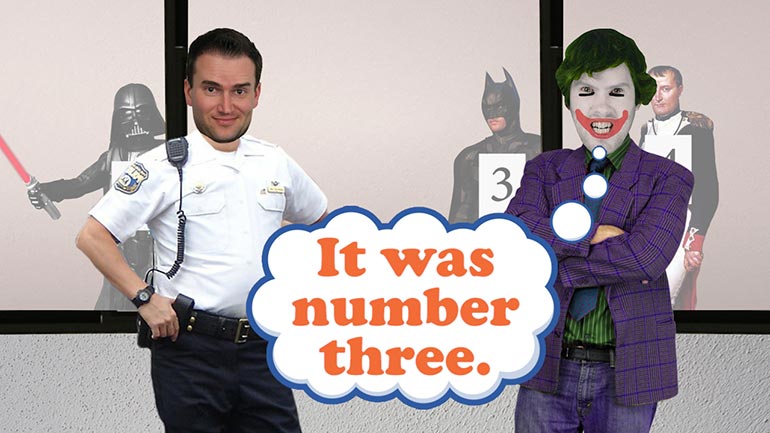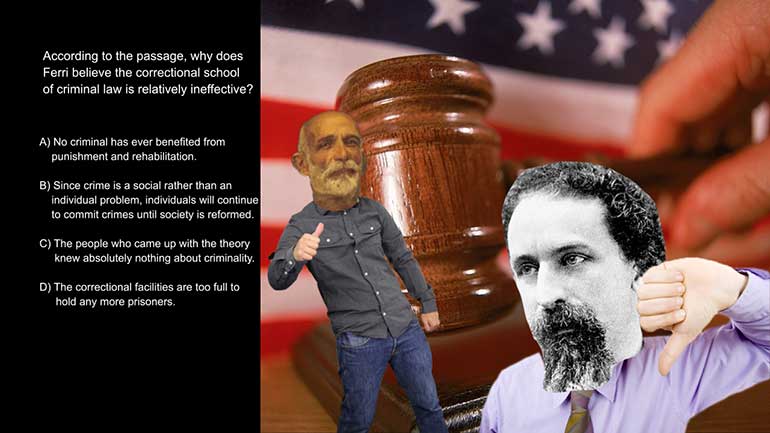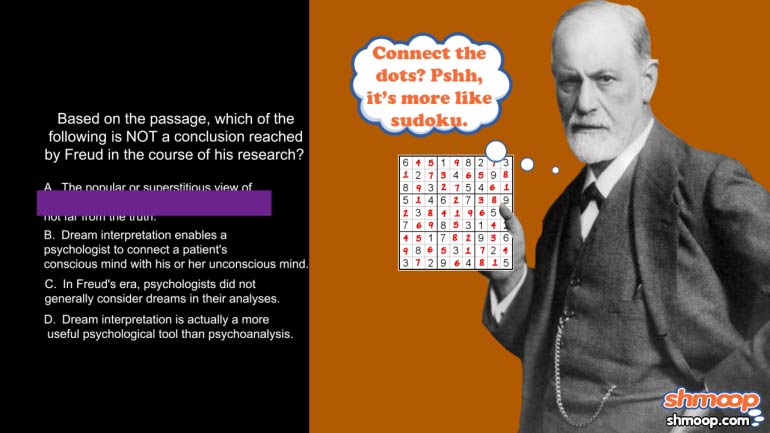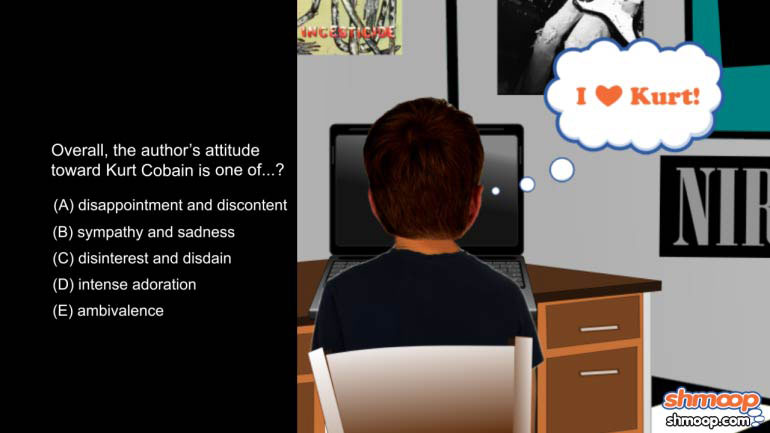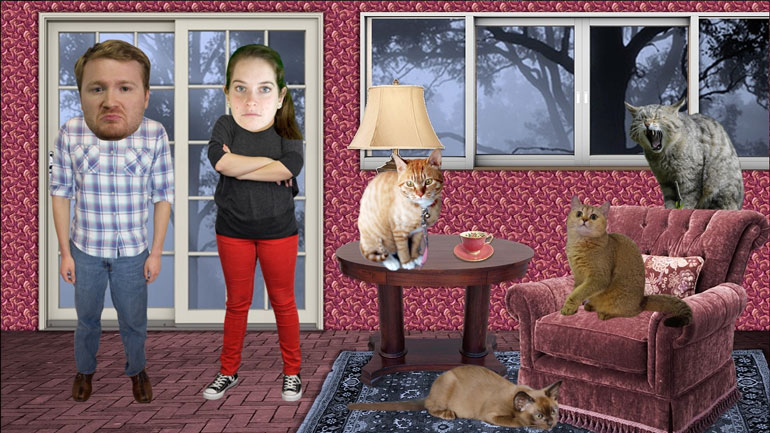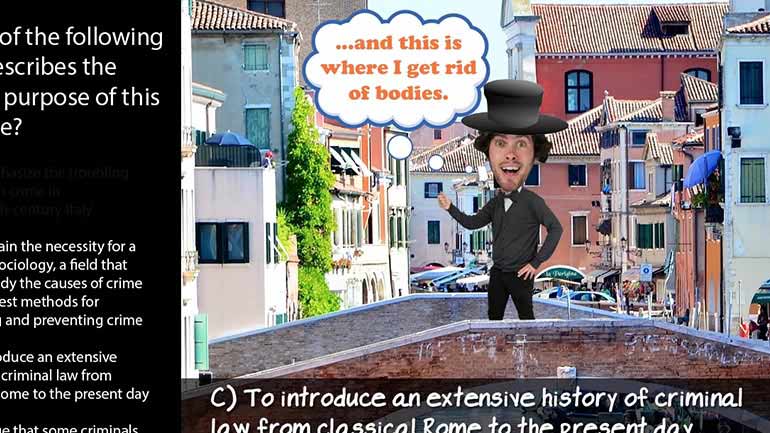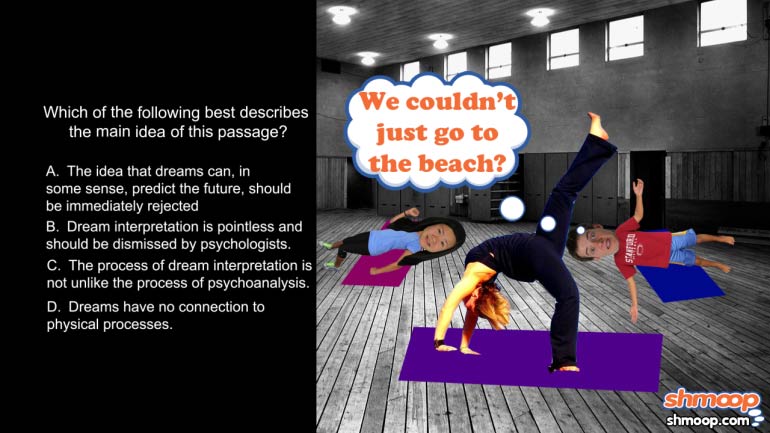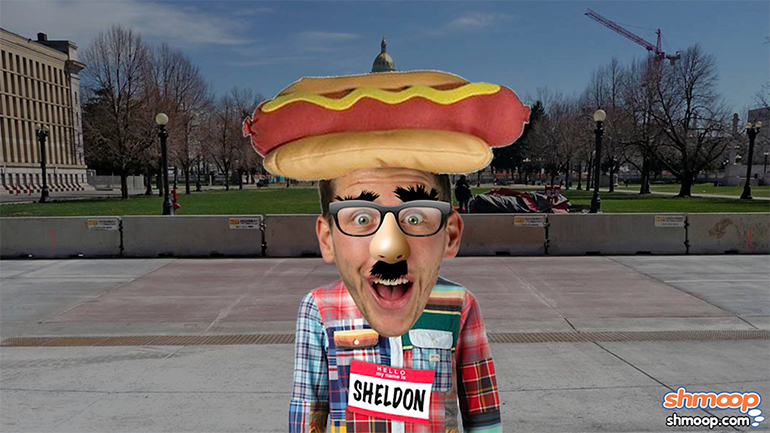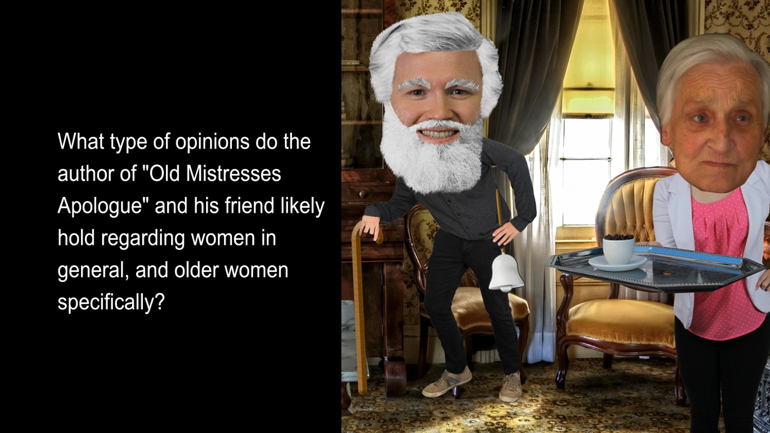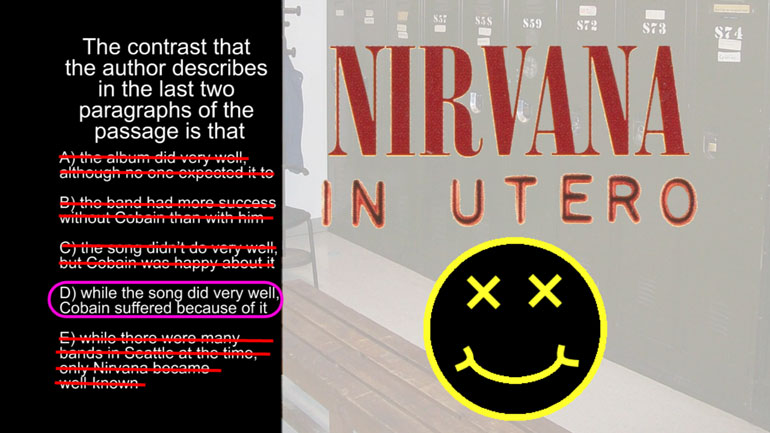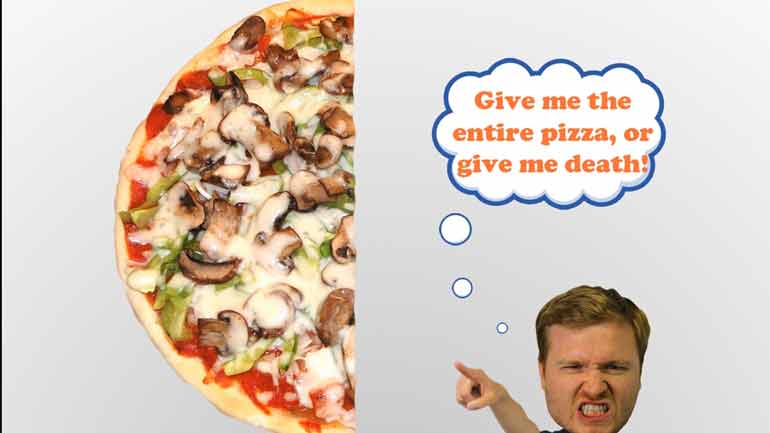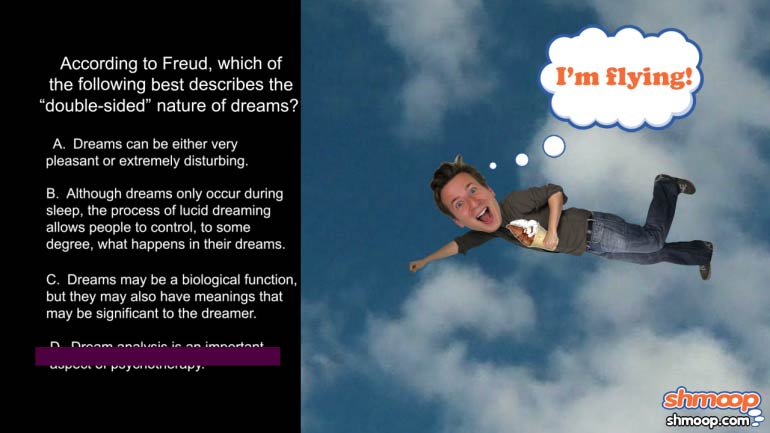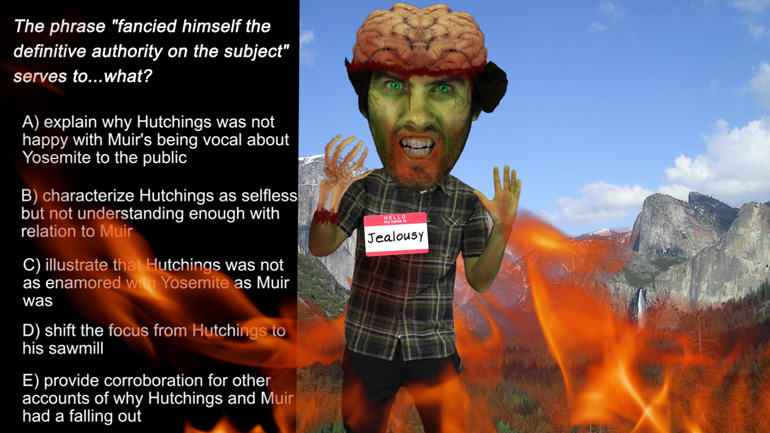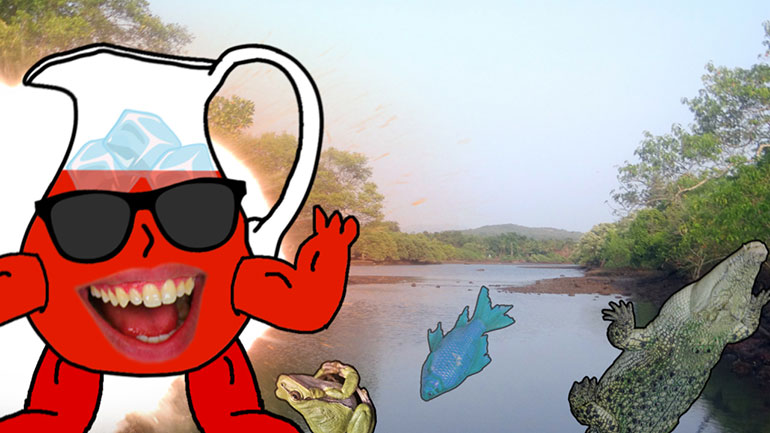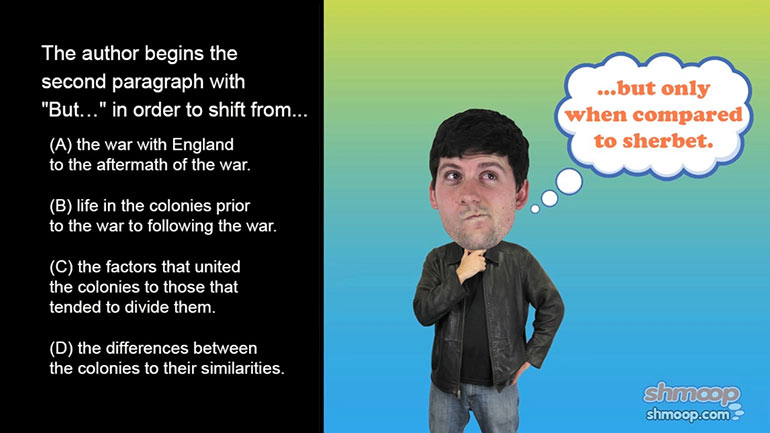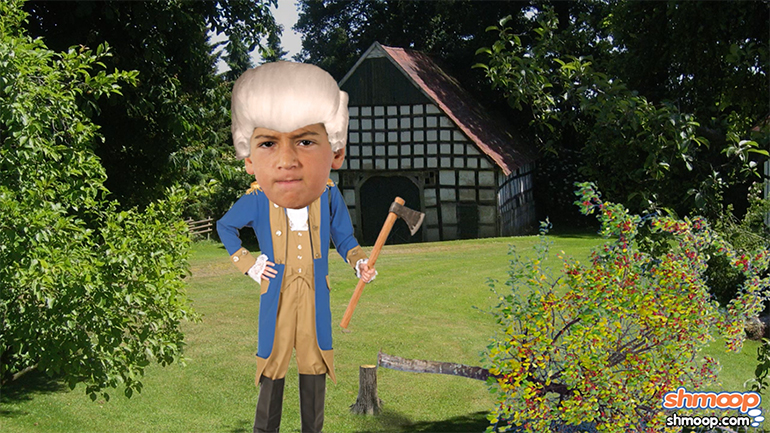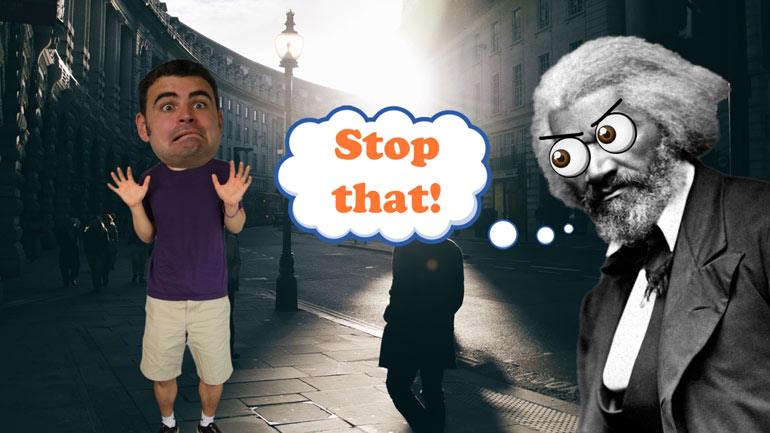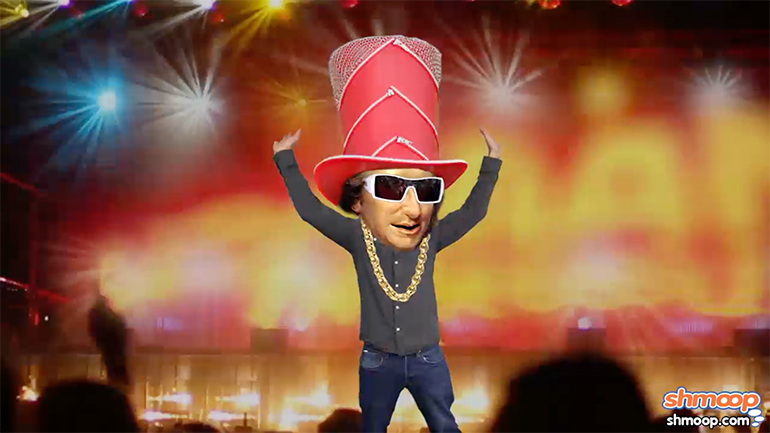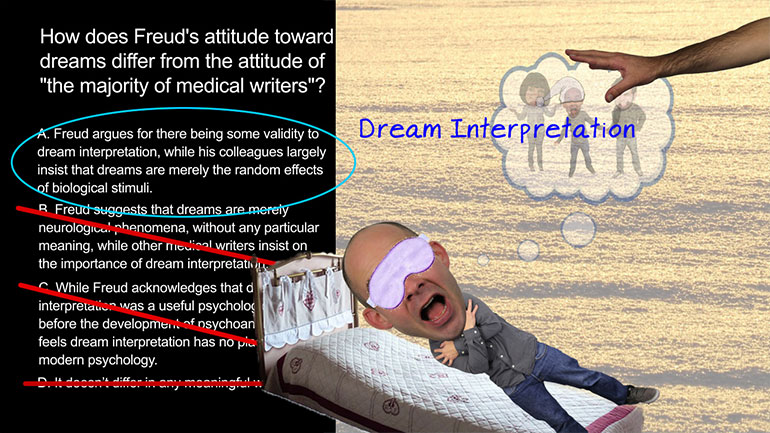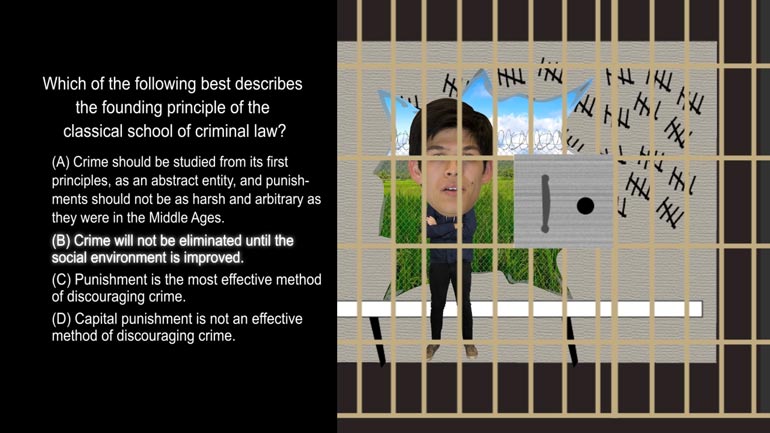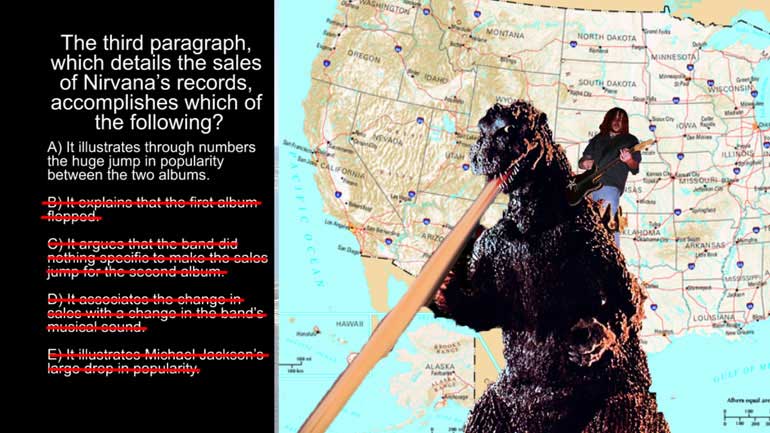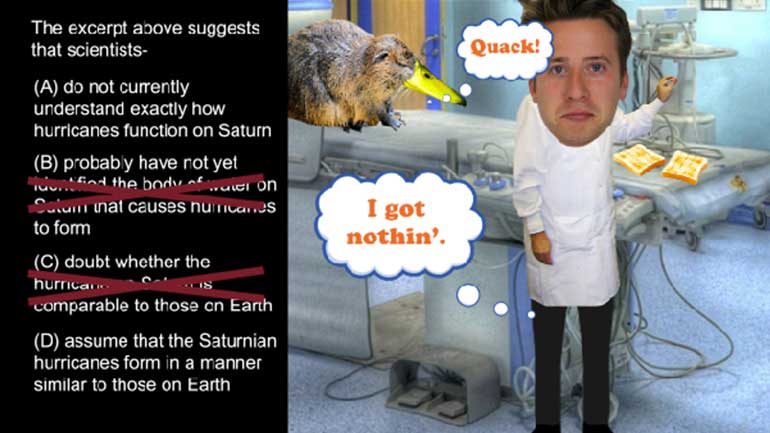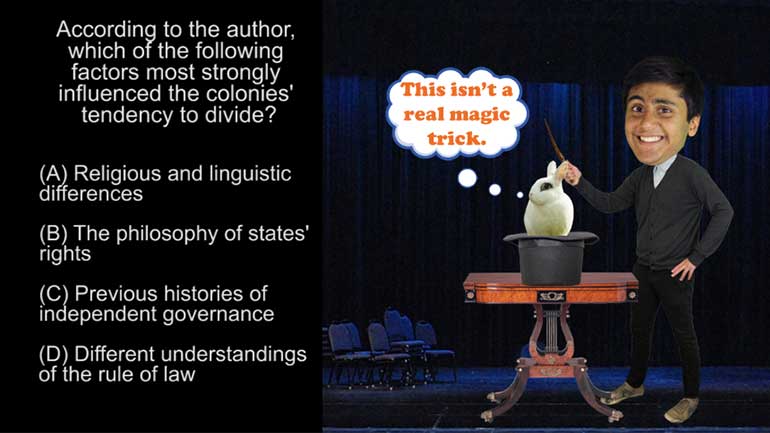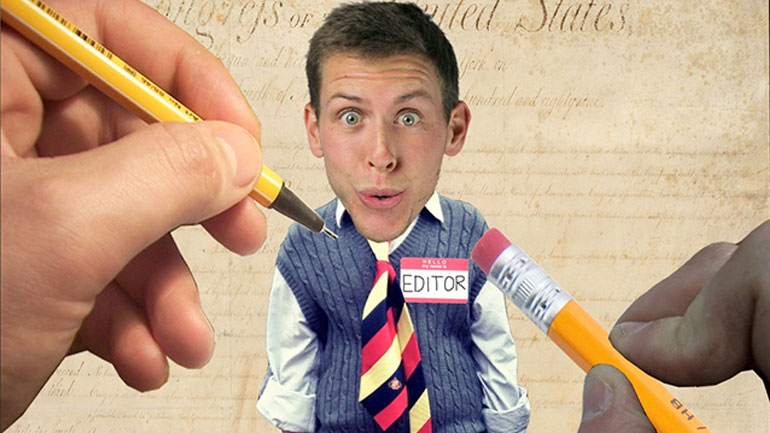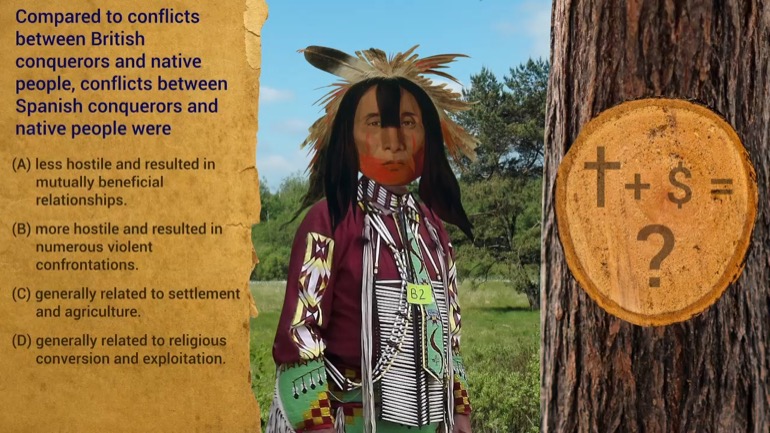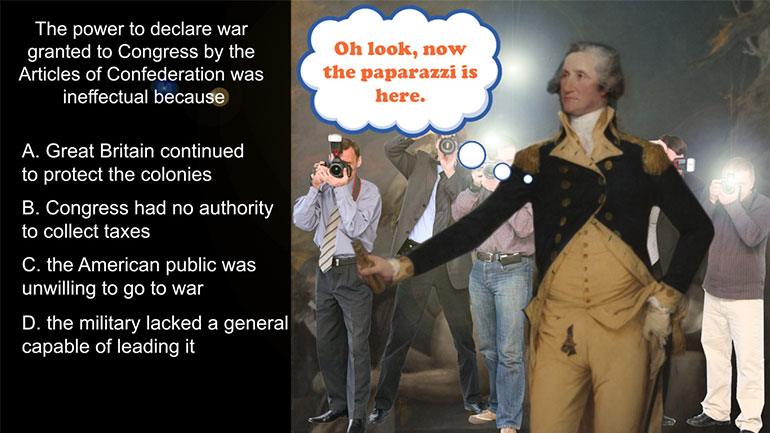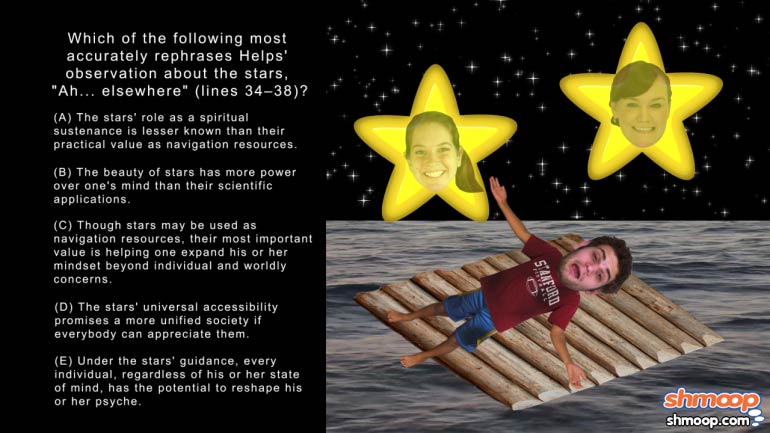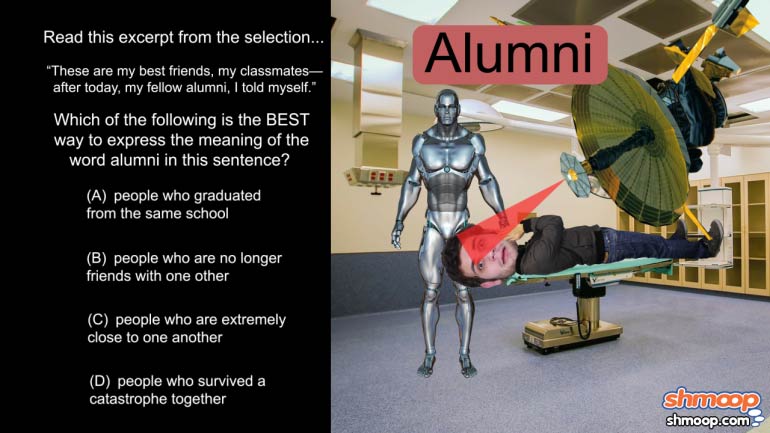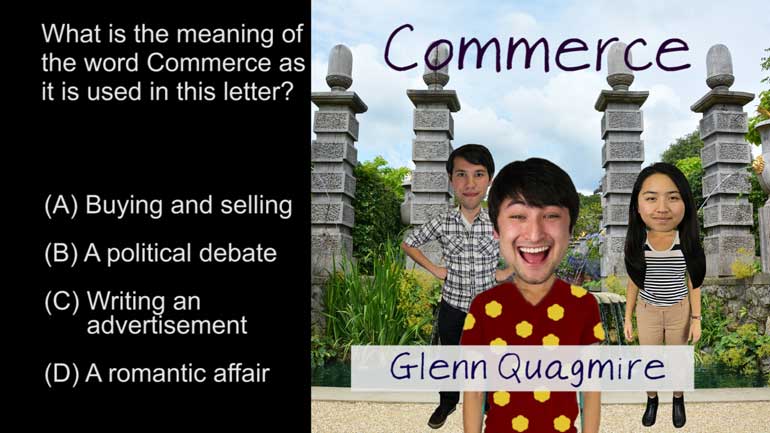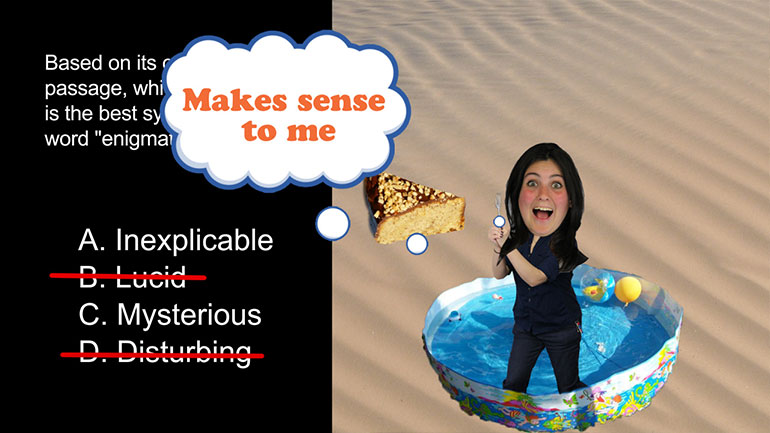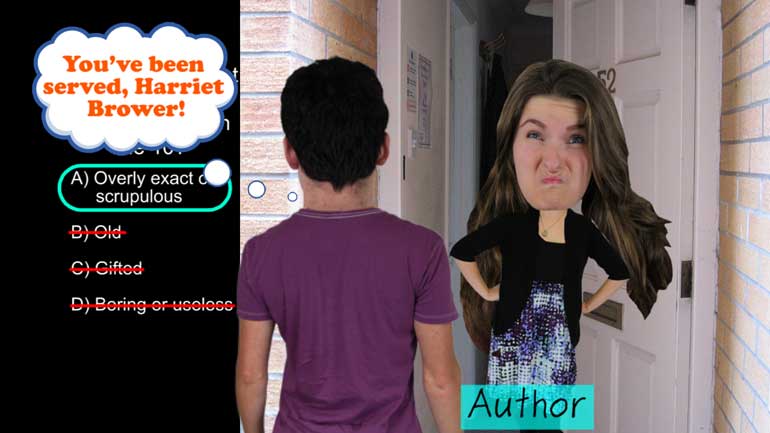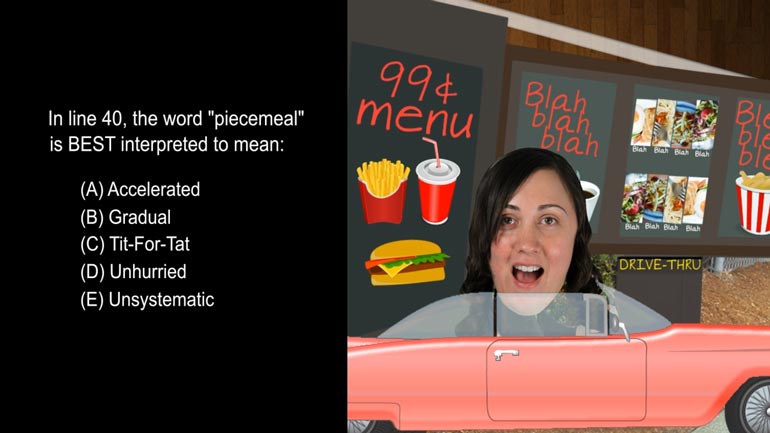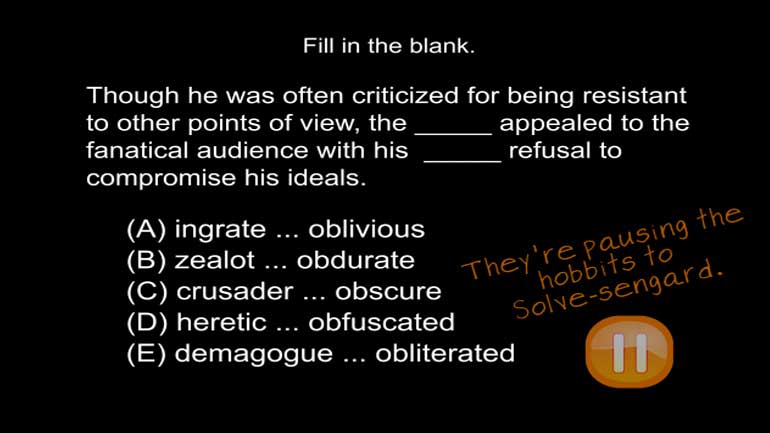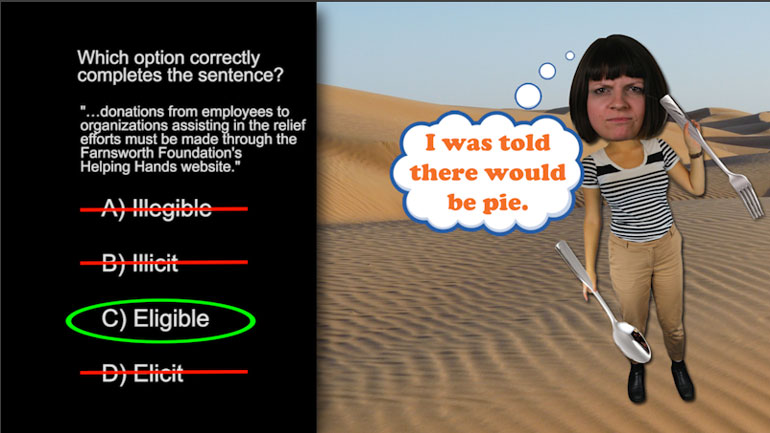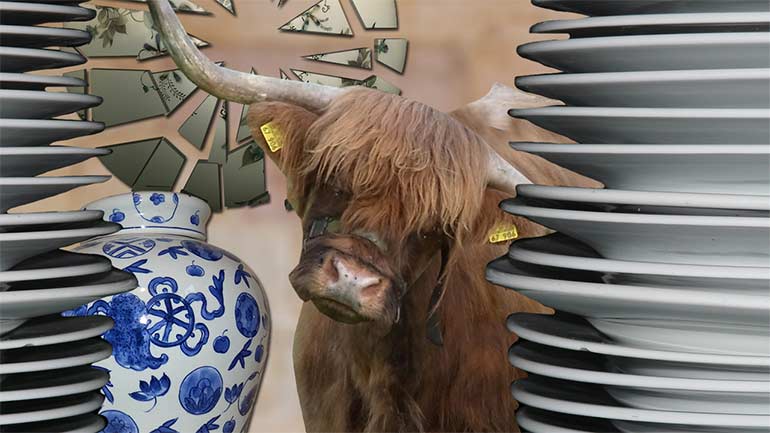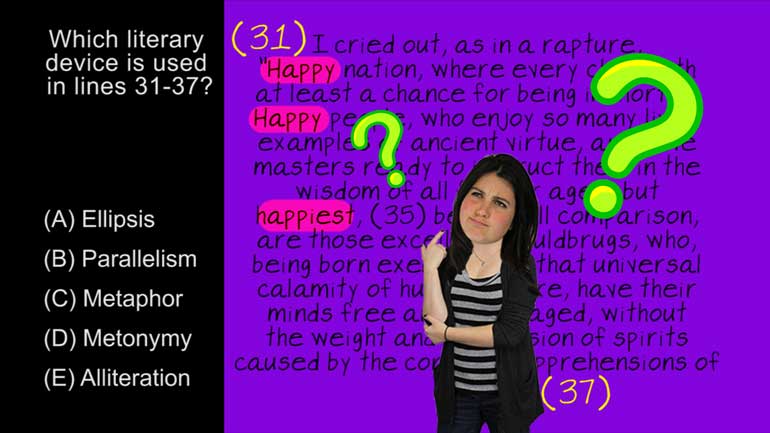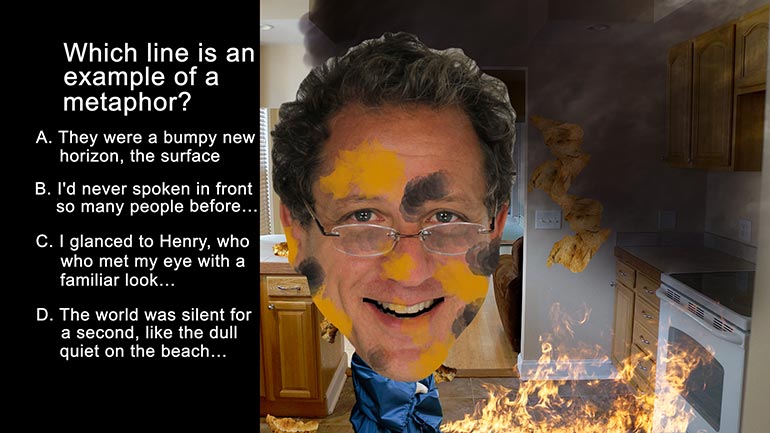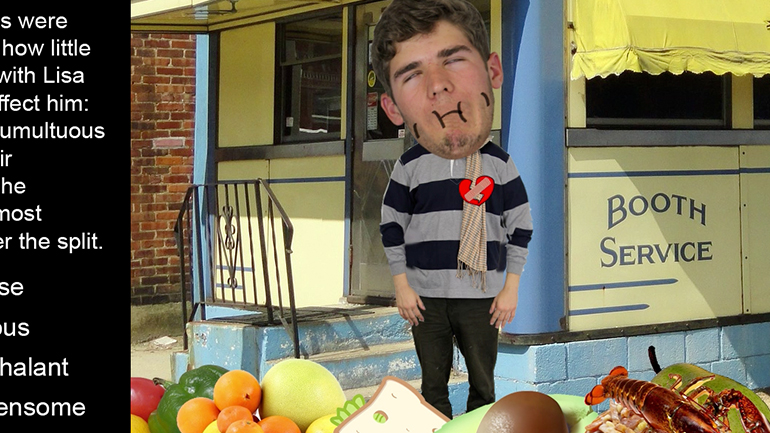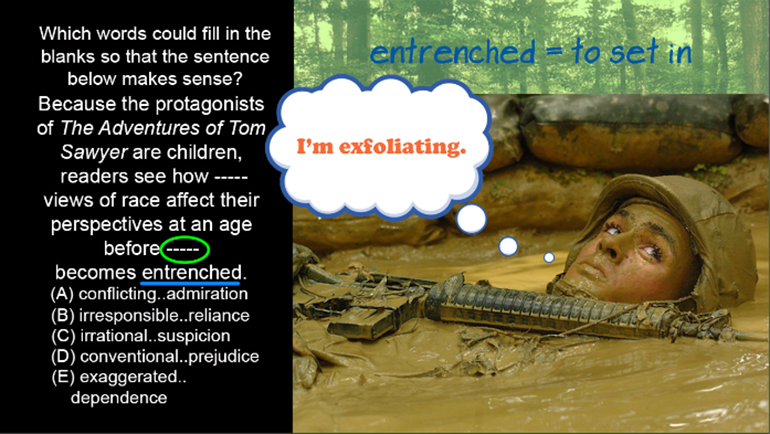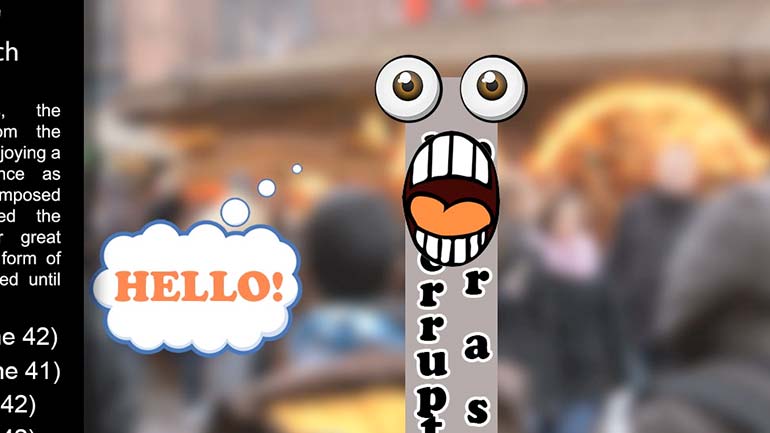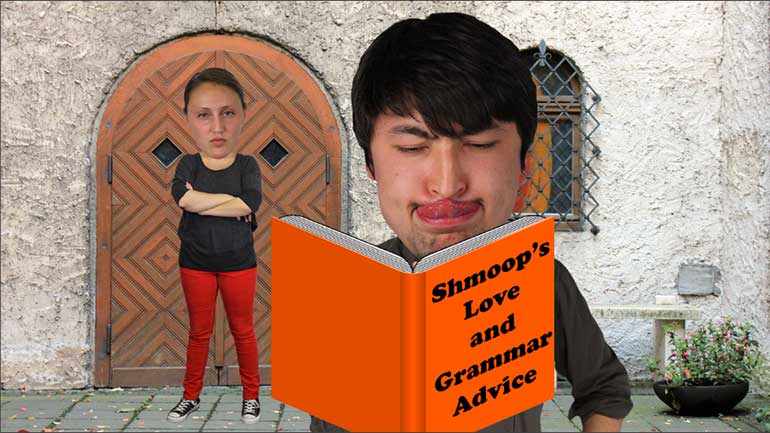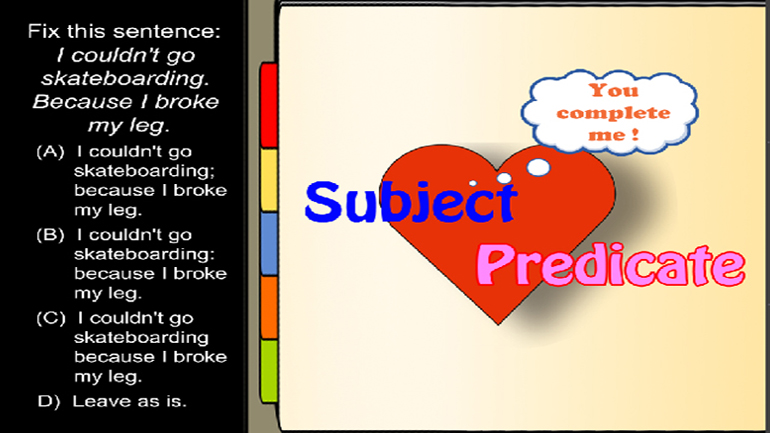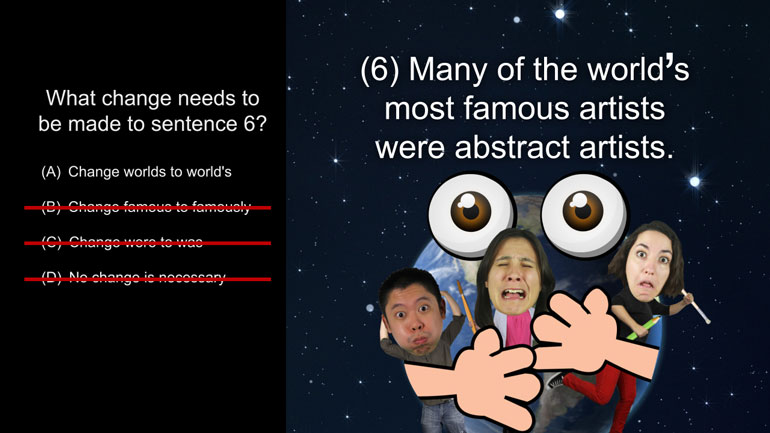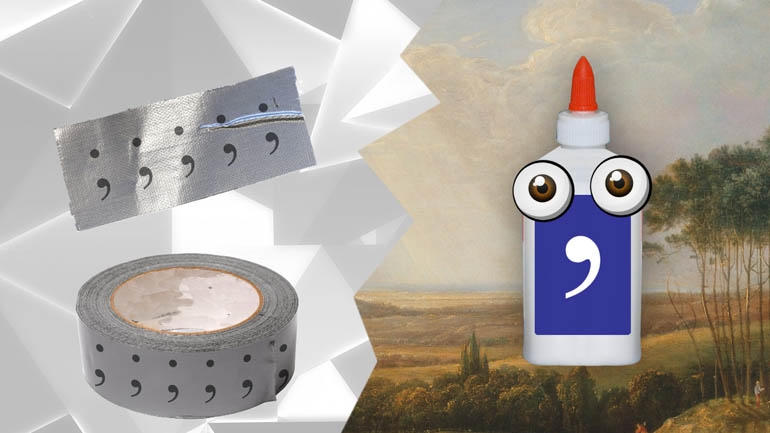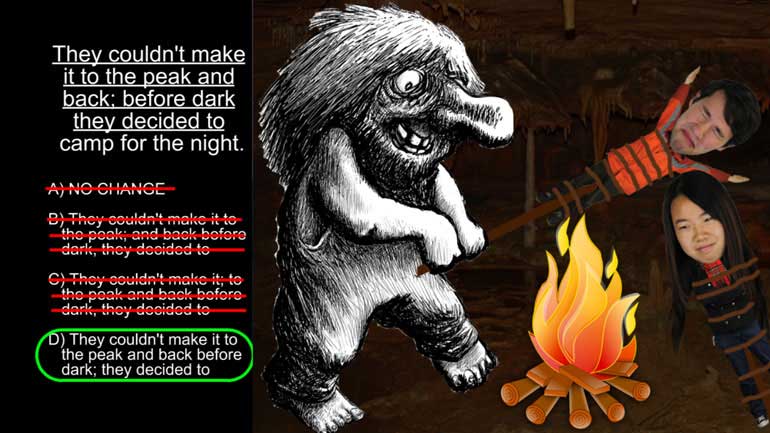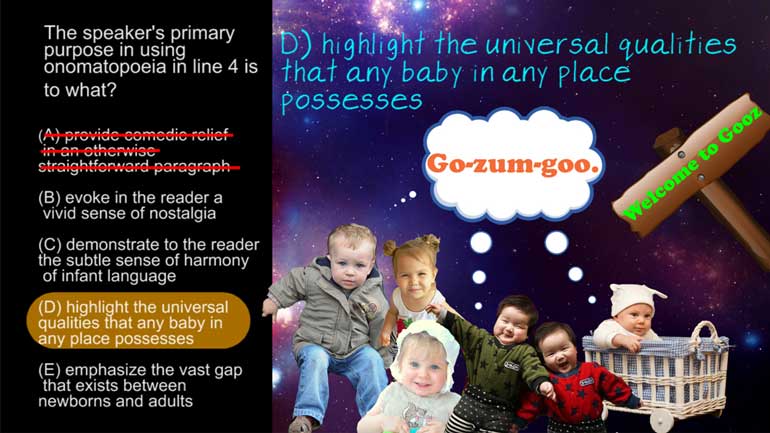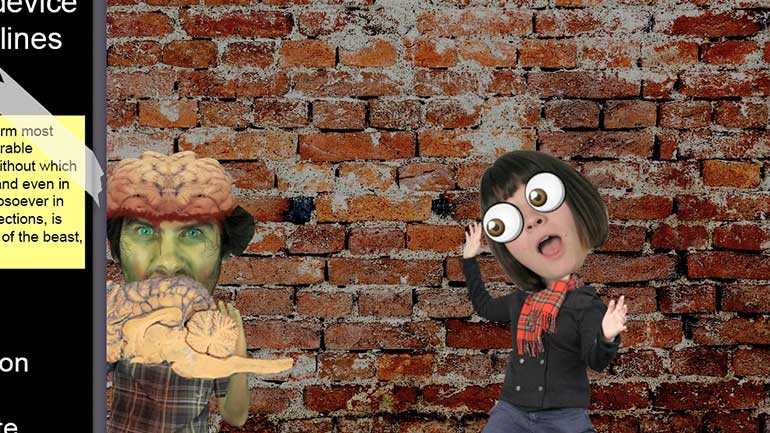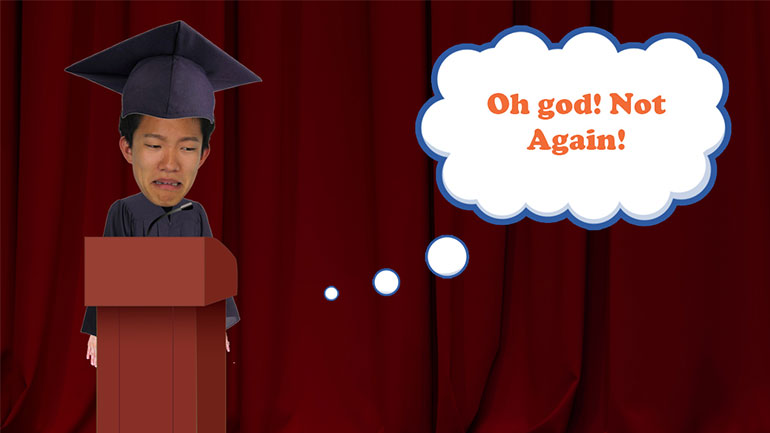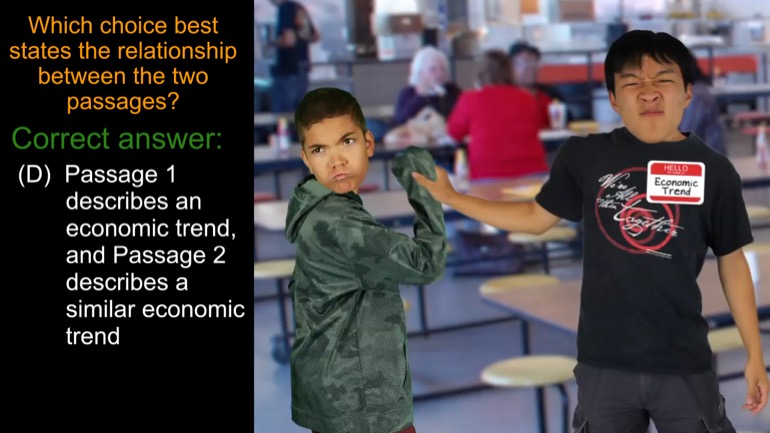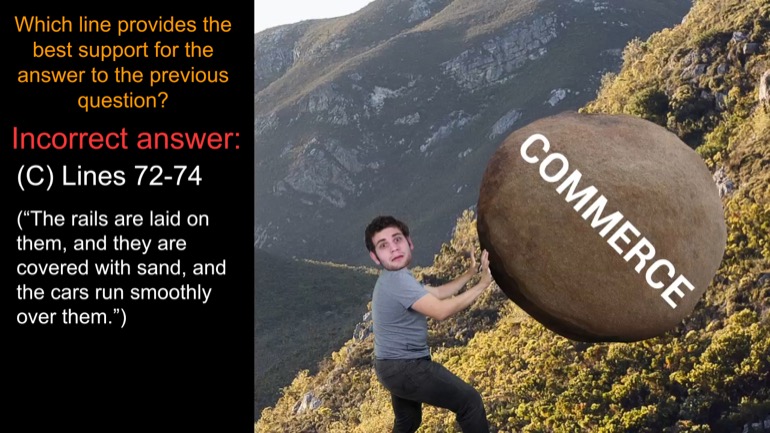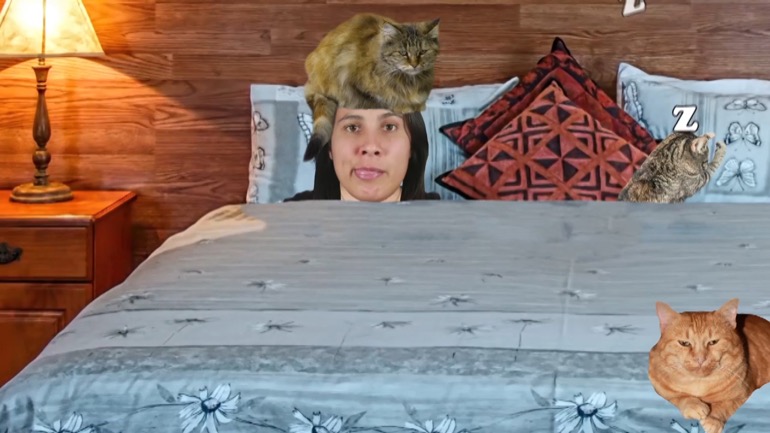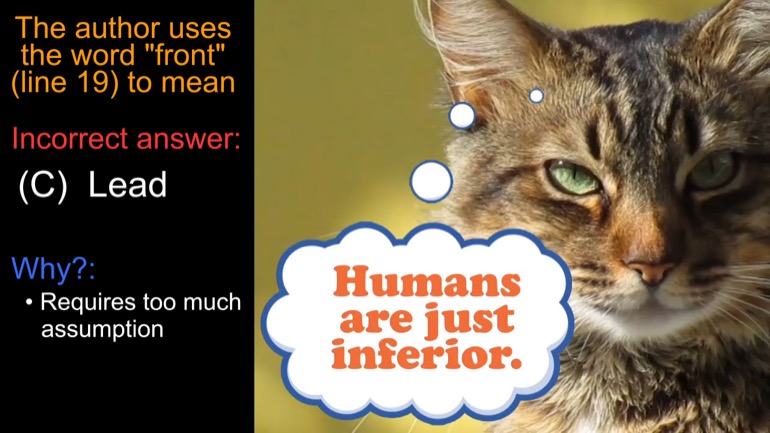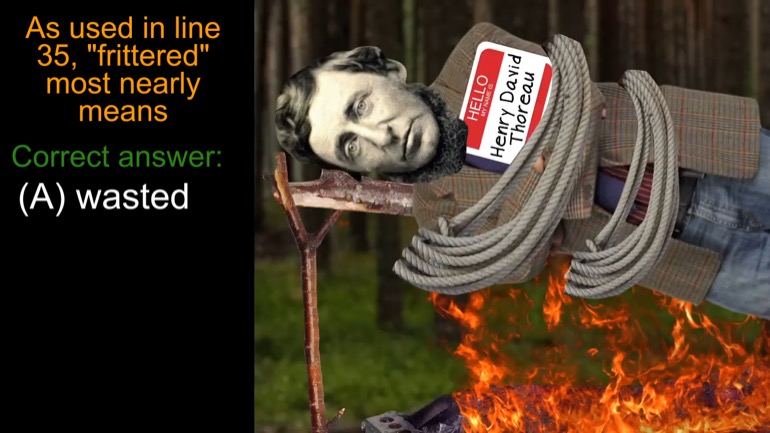ShmoopTube
Where Monty Python meets your 10th grade teacher.
Search Thousands of Shmoop Videos
English II Videos 95 videos
ACT Reading Prose Fiction Drill 1, Problem 4. How does the narrator feel about the prediction made at his birth that he would have the ability...
AP® English Language and Composition: Comprehension Drill 1, Problem 1. The speaker would agree with all of the following statements except what?
AP English Literature and Composition 1.6 Passage Drill 5. Death is primarily characterized as what?
SAT Reading 2.3 Long Passages 173 Views
Share It!
Description:
Reading Long Passages: Drill 2, Problem 3
- Foreign Language / Spanish Subtitled
- Foreign Language / Korean Subtitled
- Foreign Language / Arabic Subtitled
- Foreign Language / Chinese Subtitled
- Rhetoric / Analyzing purpose
- Product Type / SAT Math
- Reading Literature / Analyze how author’s choices in structure create mystery, suspense, or surprise
- Reading Literature / Analyze how author’s choices in structure create mystery, suspense, or surprise
- Reading closely / Understanding relationships
Transcript
- 00:03
Shmoop, it's what's for dinner.
- 00:06
Well, well, well... look who's here again.
- 00:07
If you want to read this passage one more time, just hit pause.
- 00:33
In describing his aunt's figure, as he remembers it, as "at once pathetic and grotesque", the
- 00:38
narrator draws attention to the contrast between...what?
Full Transcript
- 00:42
And here are the potential answers...
- 00:48
What does it mean to call someone "pathetic"
- 00:50
and "grotesque"? Hint: don't try these words out on your big crush...
- 00:55
We'd like to pause this colossal dating blunder to point out that "pathetic" refers
- 01:00
to someone who inspires pathos, or pity and sympathy.
- 01:03
"Grotesque," on the other hand, means...well, gross or ugly.
- 01:07
Knowing these definitions helps us to eliminate some of the answer choices immediately.
- 01:12
We don't want to rain on its parade...
- 01:14
But we know, for example, that choice (D) is wrong.
- 01:16
There's some talk about how the Nebraska weather has affected poor grotesque Auntie
- 01:21
G, but it's not directly referenced in this line.
- 01:25
The line doesn't mention how Uncle Howard feels about his wife, so choice (E) is kind of random.
- 01:30
And wrong... so so wrong. By all accounts, young Aunt Georgiana was
- 01:35
neither pathetic nor grotesque before Uncle Howard came along...
- 01:40
Therefore (B) can't be correct.
- 01:42
While Aunt Georgiana might not have been worn down in her youth, she was already deteriorating
- 01:47
when the narrator was a kid.
- 01:49
Though he does talk about how she's gotten worse over time, it doesn't apply to this
- 01:54
line. We can't go with (C) either.
- 01:56
This leaves us with choice (A), which perfectly captures the idea that while the narrator
- 02:00
feels sorry for his aunt, he can't help but be a little grossed out by her.
- 02:04
This unfortunate situation perfectly fits with our definitions of "pathetic" and "grotesque."
- 02:09
Two words that should be used with great caution.
Related Videos
How was the Beanie Baby era parallel to the Tulip Bubble? Similar events, only the TulipMania almost bankrupted Holland. Bean Babies only bankrupte...
Contemplating one's life is key to fulfilled happiness. Thoreau's theme revolves around the simple life well lived. He clearly never tried virtual...
Thoreau was all about simplicity; anything that took away from his vision was the enemy. Mechanical aids were one of them. Guess he had to train a...
Thoreau uses "front" to mean "face". He wants to face The Facts of Life without shying away from our natural tendencies, roots, and the simply way...
What does "frittered away" mean in this context? Wasted. Wasted by the way. Thoreau claims we fritter away our lives praying to modern complex dist...
